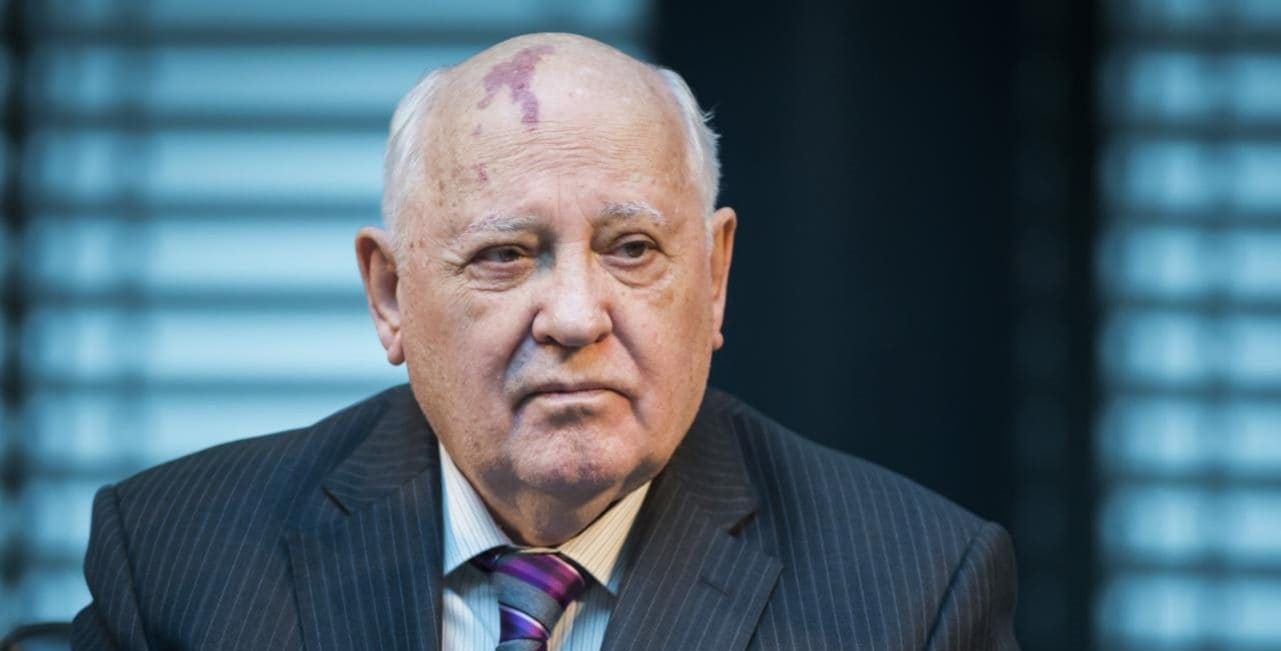Another Cold War Around the Curve?
January 9, 2018 | Expert Insights

Former Soviet President Mikhail Gorbachev has urged both US and Russia resolve a dispute over a nuclear arms control treaty.
The treaty was signed 30 years ago. The current White House announced in March 2017 that Russia was in violation of the treaty and that terms would have been reviewed once again.
Background
The Russian Federation is the successor state to the Soviet Union. Before its dissolution, Soviet Union and the US were the key factions in world politics. They were briefly allies during the World War II but by the end of the war, they had become hostile. Brewing mistrust was one of the main reasons for the Cold War.
The end of Cold War and the dissolution of Soviet Union (as well as the creation of Russia) seemingly brought an end to a period of uncertainty and turmoil. Relations even improved between the two nations during the tenure of Russia's President Boris Yeltsin but it took a significant step back under Putin.
Relations between Russia and the US deteriorated in 2014 when Russia annexed Crimea. It cited a controversial referendum for doing so. As a result, Barack Obama and his EU allies unveiled a coordinated set of sanctions against Russia and ordered it to leave Crimea. Russia responded with counter-sanctions.
Russia’s alleged interference in the US Presidential elections has further caused tensions in the ties. Despite Russia’s repeated denials, US imposed harsh sanctions on Russia. In retaliation, Russia announced that 755 US diplomats would have to leave Russia by September 1, 2017.
Mikhail Gorbachev was the eighth and last leader of the Soviet Union, having been General Secretary of the Communist Party of the Soviet Union from 1985 until 1991. He was the country's head of state from 1988 until 1991 (titled as Chairman of the Presidium of the Supreme Soviet from 1988 to 1989, as Chairman of the Supreme Soviet from 1989 to 1990, and as President of the Soviet Union from 1990 to 1991). Gorbachev's policies of glasnost ("openness") and perestroika ("restructuring") and his reorientation of Soviet strategic aims contributed to the end of the Cold War. He was awarded the Otto Hahn Peace Medal in 1989, the Nobel Peace Prize in 1990, and the Harvey Prize in 1992.
The Intermediate-Range Nuclear Forces Treaty (INF Treaty) is the abbreviated name of the Treaty Between the United States of America and the Union of Soviet Socialist Republics on the Elimination of Signed in Washington, D.C. by President Ronald Reagan and Soviet leader Mikhail Gorbachev on 8 December 1987. The treaty eliminated all nuclear and conventional missiles, as well as their launchers, with ranges of 500–1,000 kilometers (310–620 mi) (short-range) and 1,000–5,500 km (620–3,420 mi) (intermediate-range).
Analysis
Former Soviet President Mikhail Gorbachev has urged both US and Russia resolve a dispute over a nuclear arms control treaty. The treaty was signed 30 years ago. The current White House announced in March 2017 that Russia was in violation of the treaty and that terms would have been reviewed once again.
The US State Department said that it will be conducting a “review of military concepts and options, including options for conventional, ground-launched, intermediate-range missile systems” as a countermeasure to Russia’s treaty violation. This was announced on the 30th anniversary of the deal being signed.
Gorbachev has made comments in favor of the treaty. He said, “I still hope that the leaders of our countries have enough wisdom to prevent this. I urged the presidents of Russia and the U.S. to tackle the problem personally; to reaffirm commitments to the treaty, and to instruct diplomats and militaries to solve the problems. We must not forget that the movement towards a world without nuclear weapons is the most important obligation of the nuclear powers enshrined in the Non-Proliferation Treaty.”
He also noted that the treaty helped reduce fear and anxiety in Europe and Asia, including Japan, over the presence of nuclear-tipped missiles.
Assessment
Our assessment is that ties between US and Russia are currently at a historic low. Russian President has compared the tense relations to the deteriorated ties the two countries shared during the Cold War. If the nuclear arms control treaty is revoked, then it is likely the ties would be further hit. In addition, there could be fears of yet another arms race, similar to what took place during the Cold War.








Comments